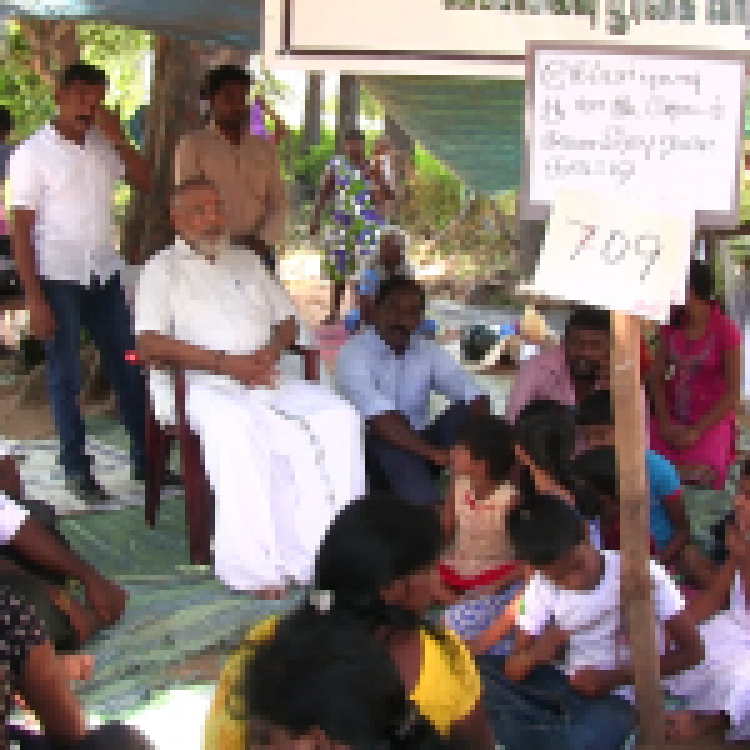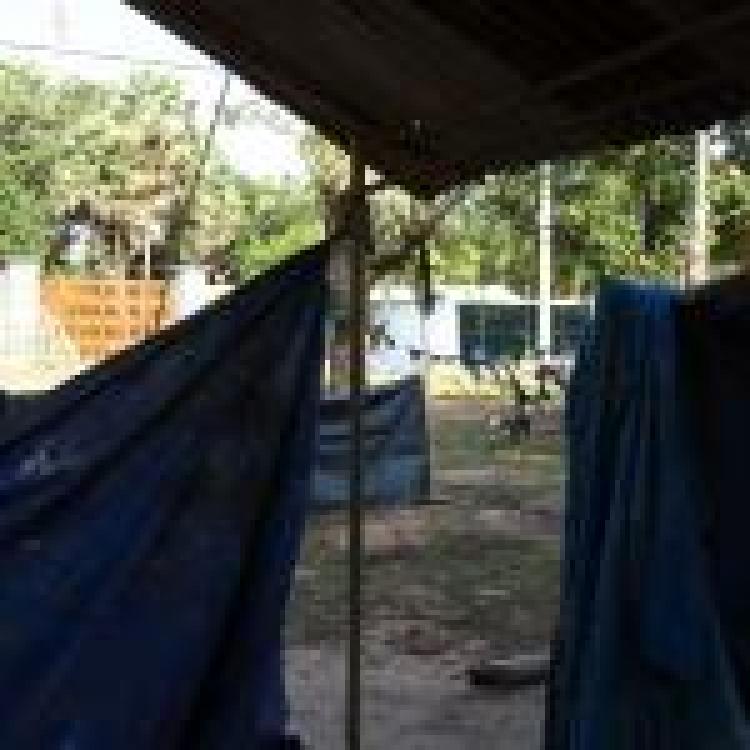
Meeting with Swiss officials last week, displaced families from Keppapulavu who have been protesting for 730 days for their lands urged them to take action.
Families told the visiting First Secretary at the Swiss Embassy on February 21 of the reasons why the Sri Lankan military continued to occupy their lands and raised doubts over why the military had systematically plugged wells in the region.
Families said over 25 wells had been plugged, accusing the military of plugging the wells to hide evidence of war crimes and genocide.
"This is why they won't give back lands near Nandi Kadal Lagoon," one protester said, referring to the site of the final battle of the armed conflict where thousands of Tamils were slaughtered.
Although almost ten years have passed since the end of the armed conflict the Sri Lankan military continues to control and occupy vast swathes of land in the Tamil homeland, forcing families to remain displaced.
Keppapulavu families began their prolonged campaign for their homes in March 2017. The campaign, which has seen widespread support among Tamils across the North-East and diaspora worldwide, has reached out to several international bodies, including the UN High Commissioner for Human Rights.
Related articles:
Army intimidation forces Keppapulavu protesters to cover shacks
Keppapulavu families continue protest for land in front of army camp
On January 28, residents of Keppapulavu intensified their campaign to have their lands released from Sri Lankan army occupation, getting as close to the camp and their lands as possible while military personnel and police were deployed to hold them back.
In October, the president, Maithripala Sirisena promised to ensure all occupied land in the North-East would be released by December 31, 2018. Following this unfulfilled deadline, families attempted to enter the army camp on their lands on January 1, however faced dozens of police officers halting the entry.

.JPG)

